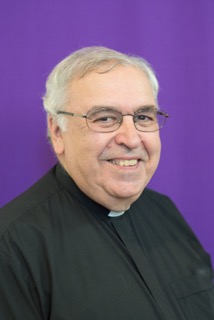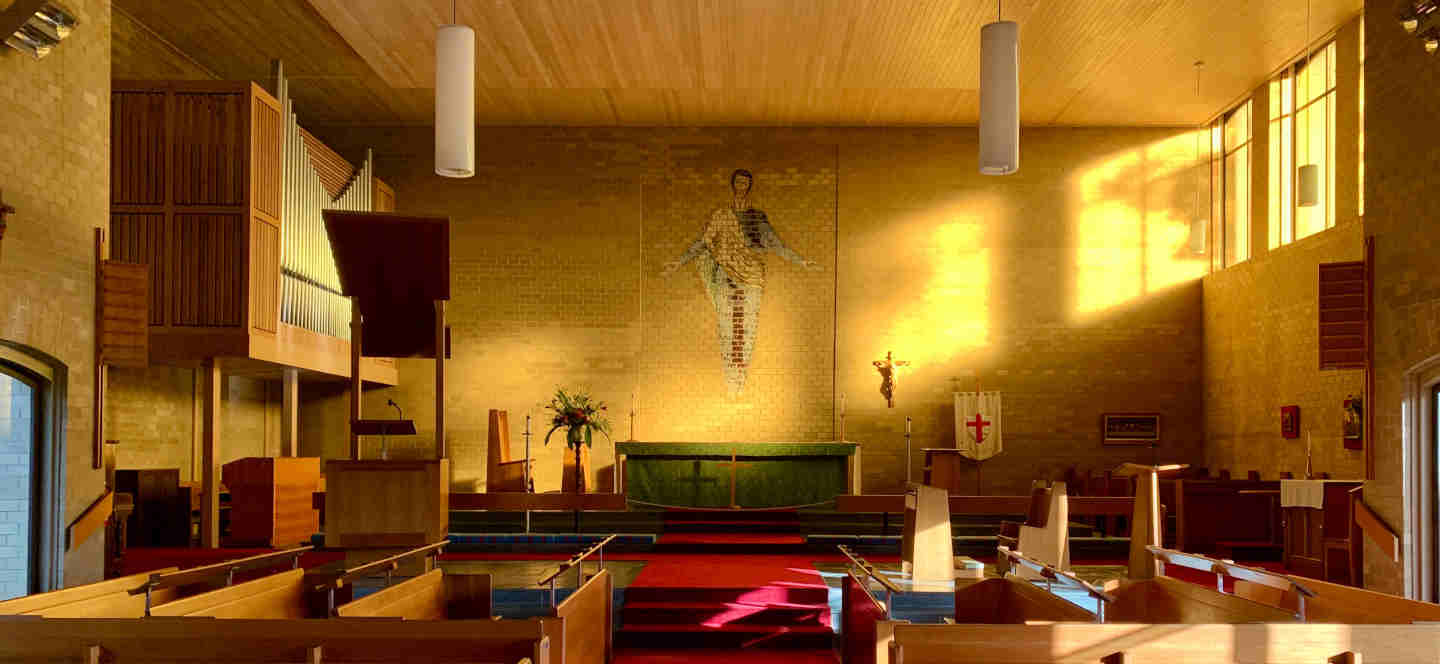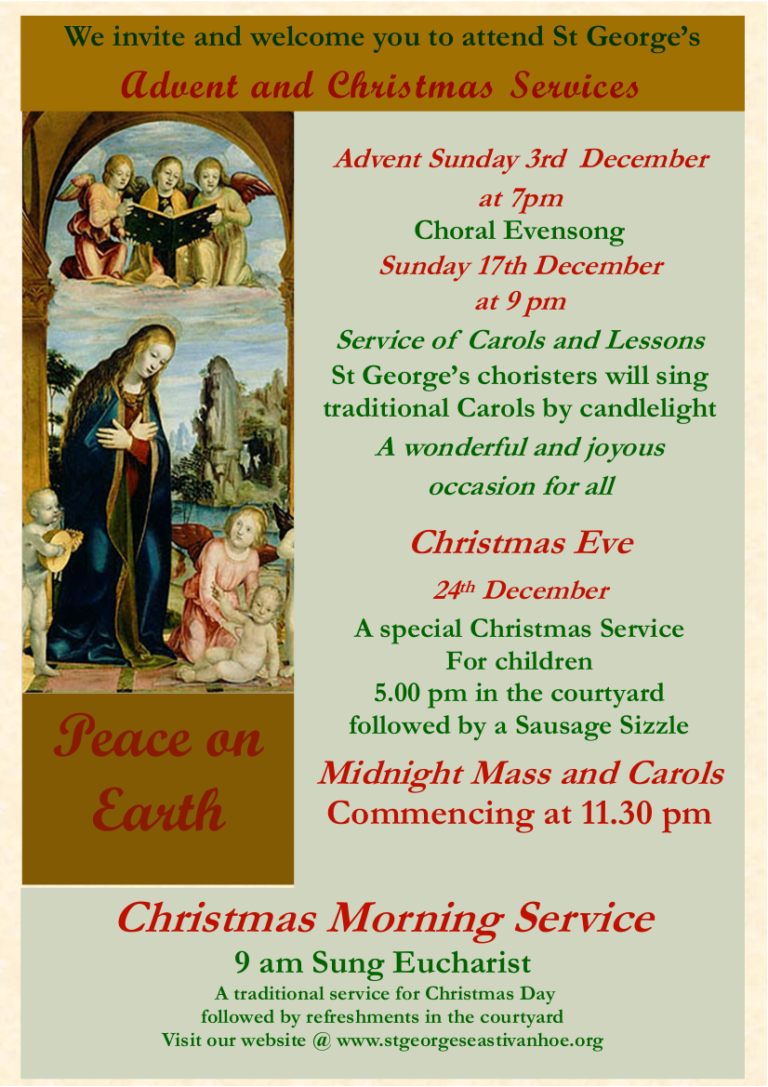Author: John Sanderson
Bulletin for November 19th has been added
Click link below to view
Richard McKinney Memorial Advent Lectures
Richard McKinney Memorial Advent Lectures
Rev. Greg Pietsch
Bishop Emeritus Vic/Tas District
Lutheran Church of Australia
The Australian Lutheran/Roman Catholic Dialogues: The Ministry of Oversight – a worked example of Reformation differences moving in mutual understanding
November 21st 8 pm
St Georges Anglican Church
46 Warncliffe Rd, East Ivanhoe
Rev Dr Robert Gribben
Professor Emeritus of Worship and Mission of the Uniting Church
The impact of the Reformation in England – and beyond Nonconformity
November 28th 8pm
Mother of God catholic Church
63 Wilfred St., East Ivanhoe
Locum Letter – Ray Cleary
 Two weeks from today and we conclude the Church’s liturgical year and then on the 3rd December we begin the season of Advent. Already we are being encouraged to shop at Target, Myer, David Jones, Harvey Norman to name a few of the retailers who have already bought their Christmas stock for our consumption.
Two weeks from today and we conclude the Church’s liturgical year and then on the 3rd December we begin the season of Advent. Already we are being encouraged to shop at Target, Myer, David Jones, Harvey Norman to name a few of the retailers who have already bought their Christmas stock for our consumption.
In my own family we have in recent years decided to push back on the commercialization of Christmas by drawing names out of a hat and choosing just one person each to buy a gift for although there is a little cheating that goes on for the grandchildren. Others of us have decided to donate to our favourite charity what we may have in the past spent on gifts. The focus for our very diverse family at Christmas is yes to celebrate the coming of God among us but also the possibility that human life gives us in so many ways to care for the earth and to share its resources in harmony with the whole of creation.
In today’s Gospel as last week we are reminded of predictions about possible consequences for each of us that are presented in a way that challenges each of us to reflect critically on life style and attitudes. End of the world talk, the threat of nuclear war has recently resurfaced, fueled by fear and anxiety. This can lead us to withdraw, remain silent, ignore or to respond to such threats with hope and the promise to be found in God.
We do not know how the world will end, although some of us are fearful of the stupidity of others. The Christian belief is that the end will be a consummation not a catastrophe with God bringing his loving purposes for creation to fulfillment and in the meantime we are to live our lives in faith, trust and hope. We all have gifts and as Christians are called to use the God given talents for the benefit of not only ourselves but the whole of creation
Shalom
Ray
Postlude for the Twenty Second Sunday after Trinity
Toccata No.1 in D Minor – Albert Renaud
Archdeacon Ray McInnes – Sermon 12th November 2017
Ed. We express our thanks to Fr. McInnes for making this sermon text available.
St George’s East Ivanhoe
Sunday 12th November 2017
8am and 10am
Our readings this week have changed direction – like the ancient Church the Advent themes come ahead of the four weeks before Christmas – instead the end of the Church year focuses on what we call eschatology or the end times.
Clearly St Paul and many in the early church expected a Parousia or second coming of the Lord in their own time. Paul was one of them and in the section of the second reading he addresses that problem – many disciples had been preparing themselves for the Lord’s return – but they had died – what will now happen to them?
This is probably why the gospel parable about the ten bridesmaids was so popular in the early Church – for it too addresses the matter of the coming of the bridegroom in glory, again the theme is about being prepared.
In the first lesson, we are taken back to the days of the conquest of the promised land by Joshua and his supporters. In battle, there is no room for the half–hearted. Joshua’s great speech calls his men to decision time “choose you this day whom you will serve – as for me and my family we will serve the living God”.
So today we are being asked to think spiritually about how prepared are we for the present and all that lies ahead of us – even death.
I was a boy scout for a few years (decades ago) and I am grateful for my time at 7th Northcote, St James Thornbury troop. Our motto in scouting was (of course) “be prepared”. Lord Baden Powell has inspired people all over the world for a long time, in this regard but I believe Jesus’ parable and today’s message asks of us an even deeper array of questions.
It has always struck me as a little bizarre that in Jesus’ story the bridegroom is running so late for his wedding – what could he be doing? There is no mention of the bride and the reception in the end begins at midnight – some 5 bridesmaids being prepared and 5 not so prepared.
Clearly, this is a very different cultural event to Australia in the 21st Century. I have been involved in many weddings – this does not seem consistent with my experience. Sure, bridesmaids can get distracted and delayed – goodness knows why? Even bridegrooms have their troubles – like the one who thought the best man was picking up the suits and now the hire place was shut! Oops!
Obviously, in Jesus’ culture a wedding beginning at midnight is no problem – what would be a problem is a lack of light and the bridesmaids’ wisdom is proportional to their readiness in this regard. Jesus is saying that faith can’t be turned on as it were with the flick of a switch (or oil in a lamp) and that wise preparation takes time – faith is not a commodity that can be shared in an instant – it takes time and effort.
I am reminded of a couple of conversations I have had out in the hustings – visiting people on the parish roll. “I don’t need to go to Church Vicar” said one lady “my uncle was an Archdeacon”. “Really!” said I – and “I’m sorry to disappoint you, his faith (whatever it was) was not transferrable.” Shock horror. Or on another occasion the person who announced “I don’t need to go to Church Vicar – because I don’t sin!” “Really!” said I. “If that is so you are completely correct however, I suspect that – you might like to look at that analysis a bit more closely!”
Being spiritually prepared, having our lamps ready and oil to keep them going is an old-fashioned metaphor but it does ask of us, what are we doing prayerfully to respond to the challenge. Who will you serve? There is a spiritual battle before us and as Paul reminded the Ephesians – put on the whole armour of God. He drew on the image of the Roman soldier – we are not contending against flesh and blood, but against the principalities, the powers, the world rulers of this present darkness, against the spiritual hosts of wickedness in the heavenly places. Having done all to stand with –
‘your loins girded with truth, with the breastplate of righteousness, your feet shod with the gospel of peace, above all taking the shield of faith with which to quench the arrows of the evil one, the helmet of salvation and the sword of the Spirit which is the word of God.’
Pray at all times, keep alert, persevere, make supplication to the saints.
It’s a great image and although I’m more pacifist, than militant – nevertheless it does remind us of the reality of evil in the world and in our own lives – if we are real and honest with ourselves – unlike those parishioners of mine.
In a few short weeks we will be in Advent proper and for 2 Sundays the dominant message of “be prepared” will return – this time the central figure is John the Baptist.
Prepare the way of the Lord – make his paths straight. Christians know that our lives require of us both a corporate and personal response to all Jesus has done for us. We take seriously that we are good citizens, of the highest integrity and morality, that we value justice and mercy – so the battle to be Christlike and ever ready for Christ to come is one that calls us outwardly and inwardly.
It is easy to be distracted – the early Christians were very aware that in Christ they were new creatures. Because of that they seem to have been acutely aware and focussed on letting their light shine in the dark places. Perhaps we have lost that drive, energy and focus. Time has dulled a sense of urgency and we find ourselves drifting.
Our influence and our vocation is 24-7 and is highly valued at work, among friends and the family.
Today’s message is as important in 2017 as ever. Keep alert, be spiritually prepared and take up the necessary array of spiritual defences and equipment for our unique journey.
Bulletin for November 12th 2017 has been inserted
Click link below to view
Forthcoming Parish events
3rd December 7pm Choral Evensong for Advent
Sung by the choir of St George’s East Ivanhoe – music to include Gibbons Short Service in A flat
9th December 6.30pm Shared meal.
The Locum vicar would like to make this an occasion to say thank to people for their work throughout the year . He will provide some fruity wines to celebrate . It would be good if we could make this a parish event and gather as a community before the business of Christmas. Mark it in your diary now.
17th December 9pm Service of Nine Lessons and Carols.
Traditional carols sung by the (augmented) choir of St George’s East Ivanhoe in a candlelit setting. Tell all your neighbours and friends of this highlight of the Christmas season.
The Reverend Canon Dr. Ray Cleary – Sermon for All Saints with All Souls 5th November 2017
All Saints with All Souls 2017
I grew up in an Anglican Catholic Church. I was attracted to the church first by the basketball club attached to the parish where many of my friends played and then one Sunday I attended Church out of curiosity, not belief or commitment to Christian faith. My family was not church attenders and the closest they came to church was for the occasional wedding, baptism and Funeral. On the other hand every Sunday morning around 11am my father and his friends gathered in the backyard for what they called the catholic hour. It had nothing to do with religion but rather cold ale as we say and a sense of mateship and community. It was what could be called a gathering of the clan.
The street we lived in was very cosmopolitan with new arrivals from Greece and Italy, and hospitality was a key attribute of all who lived in their small houses close together. Our community was very supportive of each other and stories abounded of loved ones left in Greece or Italy while the Aussies lamented their Irish or Scottish forebears. The new arrivals were very religious being catholic or orthodox and they brought with them new cooking methods and cuisine. Children would play cricket or football in the street with watchful eyes from every house. Broken windows were not uncommon, along with braised knees and sore backsides. Central to our shared living was community and relationships.
I was reminded of these occasions as I thought about the Festival of All Saints with All Souls we are observing today. It is also somewhat fitting that we are doing so the Sunday after Fr. Stuart has completed his ministry among you and a new day has emerged in the life of the parish. All Saints is about the community of the faithful.
On Tuesday I read with interest David Morgan’s History of the parish from 1963-2013 titled “Christ Is Made The Sure Foundation “ that describes with references to the faithful people of God who have served the Church, this parish and their faith with passion, love and commitment. It is a story about community and the place of relationships in our mission.
I began my faith journey out of curiosity and found to my surprise that I even liked Church, the colour, the music, the smoke and the fellowship. My senses were stimulated and the mystery that surround the experience has stayed with me . On some occasions on great feast days one could not see the sanctuary due to the level and intensity of incense.
At the centre of the celebration of All Saints is community and our connectedness to each other It is an occasion to recall those special in our own faith journey. It is a great occasion to remember the faithful people of God, not just those who have celebrity status such as Peter, Paul, George, Mary or John but rather the unknown and the often neglected. They remind us of our connectedness to a great company of God’s people throughout generations and they provide a context and mission imperative for our own journey of faith.
I am sure you can recall individuals by name. I remember Ms. June our next-door neighbour who offered to take me to Sunday school at age 4 who introduced me to Jesus.
I remember Agnes Smith, a short lady of 4’6”, who lost both her sons in World War 1, her husband some time later. I remember her optimism, her hope, and her deep compassion for others and in particular her tenderness and gentleness. Each Sunday and most holy days, Agnes would be in Church irrespective of the weather or health. I found Agnes inspiring. Likewise Catherine Smith social worker and advocate for justice.
Today’s celebration in such a consumer and present day orientated society, eager so often to forget the past, do not any longer study history, relegate faith to the status of myth and so often unwilling to face an uncertain future, the theme of community, past, present and future, provide a focus for us here at St Georges, as we ponder and reflect upon our own individual and parish journey. We are reminded that as a fellowship of believers we are not a “Johnny come lately” event but a movement a radical movement that began at the time of God breathing life as we know it today into the creation. We are reminded that from love we come and to love we return.
In the passage from the book of Revelation we hear the promise of God ‘s salvation and redemptive act. Though they are themselves people who have suffered, the saints take delight not in what they have achieved but rather in God to whom their salvation belongs. The community of saints is diverse. Its members are drawn from every nation, people and language and yet they speak a common word. They share a common song.
Our Gospel reading describes the focus of God’s blessing, and we are reminded that it is the poor in spirit, the meek, the hungry, those who seek after justice, the merciful, the peace maker and the persecuted who get the “Guernsey or Jumper”, or as one commentator on the passage says, “the apple of God’s eye”, or “God’s preference for blessing”.
Jesus does not ascend the mountain, to escape the crowd, nor should we try to identify a real mountain somewhere in Galilee, as the gesture is symbolic. Nor should we suppose that Jesus delivered all these sayings at the same time. They are probably a collection of sayings. In the biblical tradition the mountains are places of revelation. Jesus ascent of the mountain evokes Moses ascending Mt. Sinai to receive the Torah and with unparalleled authority that belongs to him as God’s son, he now imparts a new sermon and interpretation of the sacred text.
Sadly and accompanied by much suffering and exploitation these promise and blessings have been misused both inside and outside the Church to justify the exploitation of the poor and calling on them to accept their lot as their reward will be in heaven. This is both a false and simplistic reading of the text.
They are promises that are to a have a profound affect now as in the future on each and every one of us. As we have heard all year from reading Matthew’s Gospel Jesus speaks not only with authority but also with a radical ethic for living. This is an ethic that has serious implications for all who call themselves believers and followers of Christ. The requirements stand in contrast to worldly values and expectations. They are the demands for a just and ethical society for today. To be gentle, to mourn, to thirst for what is right, to be merciful, pure in heart and a peacemaker is to show in our own lives the presence of God and signs of his kingdom. We are all diminished and our own redemption at risk when we fail to hear the cries of the poor and disposed for justice.
In a letter I wrote to the Age a few months ago I asked the question where is our moral compass for today? I was reflecting at the time on statements from politicians and other leaders in our community who claim to be Christian, enacting and supporting policies that will impact on those least able to bear the brunt while ignoring the failures of the powerful. Compassion and justice ignored at the expense of political expediency and economics.
Most of us throughout our life will have times of struggle, hurt, failure and disappointment. Very few of us will escape such experiences. The saints we recall today experienced such times. They stood alongside those who were voiceless and powerless and like wise we are called to do the same at this time of anxiety and confusion in many aspects of our common life.
Matthew’s sermon, like Luke’s account, has the power to undermine any truce we have made with the world of today and to awaken us to life under God. It is a risk-filled and precarious existence the one Jesus calls blessed. It is a call not to see the world purely through the lens of present but through the eyes of God. This is not an easy task, as the issues we are confronted with are challenging, and appear often without simple solutions.
There is much for all of us to ponder and reflect upon as we all struggle with the issues of the day that affect who we are as people and our relationship to God.
Amen



